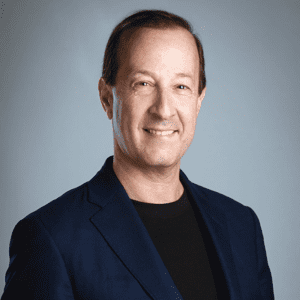Exclusive Industry Interview: Clean Origin CEO Alexander Weindling Predicts Explosive Growth For Lab-Grown Diamonds
3 Minute Read
Lab-grown diamonds are finally hitting mainstream consumers, and Alexander Weindling, Co-Founder and CEO of Great Heights, which owns lab-grown diamond e-tailer Clean Origin, is ready to pounce following a $20 million in financing from Titan Industries, the Indian diamond giant.
"The code was broken," he says. "We can replicate nature's process for the creation of diamonds from carbon, we can do it above ground, and we can do it a lot faster."
Clean Origin's mission is to hold the diamond industry to a higher standard with its sustainable, conflict-free diamonds. It produces lab-grown and sustainable conflict-free diamonds, providing younger consumers of luxury items with peace of mind when purchasing the diamond of their choosing.
According to Titan records, Clean Origin saw $25 million worth of revenue in 2021, a 56.25% increase from its $16 million 2020 revenue mark. A Clean Origin press release states that it intends to use the new funds to scale its operations, increase efficiency in supply chain operations, and build a strategy to dominate the lab-grown diamond ring engagement industry - among other implementations that will help the company succeed.
The environmental impact of diamond mining initially motivated Weindling, who has a background in the diamond trade, to learn more about growing diamonds in a laboratory. "What I looked at was these massive craters in the ground and the energy and pollution and disruption from diamond mining," he said. "If you're [a diamond mining company] going to dig a hole in the earth that it is visible from the upper atmosphere, I don't need a degree in science from Princeton to know that isn't probably a good thing for the planet."
He continued to list the ways diamond mining impacts the planet and its people: soil disruption, water pollution, and communities that are being disrupted and displaced. "I don't understand why we continue to do that when we can get the exact same thing from a lab-grown diamond," he said.
Weindling then turned to the issue of conflict, diamonds, the most common argument in favor of lab-grown diamonds over mined diamonds. "I always laugh in a very sad way when people say they have a 'conflict-free mined diamond.' After you cut and polish a diamond, you don't know where it came from — you don't know whether it came out of the ground in Canada, Russia, Angola, or Zimbabwe. There are a lot of diamonds out there passed off as 'conflict-free' and who knows," he said.
He steered the conversation toward Putin's war on Ukraine. "How about Russian diamonds? They are one of the largest producers in the world of mined diamonds. In the last couple of weeks, we've made very clear that [Clean Origin] will not handle any Russian diamonds. We've made that clear to our entire manufacturing community," he said.
But Weindling then made the obvious point that it is difficult to determine the origin of a diamond. What is an ethically-minded consumer to do? "If you want to be sure you are not buying a Russian diamond, you better stay the heck out of mined; because they [Russia via Alrosa] are one of the largest producers of mined diamonds in the world," he said.
In addition to avoiding environmental impacts and conflict diamonds, there is one other advantage to purchasing a lab-grown diamond that Weindling mentions: the price. "For $1,500 or $1,600 you can get an eye-clean 1-carat diamond," he said.
So are we at the beginning of a lab-grown diamond boom? Weindling has some thoughts. "From what I've seen people over fifty don't want to hear about it, and people under thirty all know about it. I think we have a steep growth curve and a long way to go, but I think it will be a very important piece of the diamond business," he said
Weindling anticipated pushback from the traditional players in the industry, but he doesn't want to discuss it in detail. "[Clean Origin] will show people that there is a choice [between lab-grown and mined diamonds]. I want the consumer to do whatever they think is right, do what sits well with their conscience, and with their wallet."
Walter Yeates
Walter Yeates is a novelist, journalist, and screenwriter. He has bylines at Huffington Post and even Elite Daily. He embedded with First People and Military Veterans at Standing Rock several years ago and recently launched his own multi-platform publishing company, RHELM Studios. When he isn’t busy, he enjoys exercising and playing video games.
Lisa Rosen
Related Articles
Major Retailers Stop Buying Russian Diamonds as Public Pressure Mounts Amidst Ongoing Russian Invasion of Ukraine, Humanitarian Crisis
Spring 2022 Trends Include Pearl Jewelry for Men and Women
Russian Invasion of Ukraine Will Not Disrupt Supply of Diamonds, Gold in the Short Term
Russia’s Invasion of Ukraine May Push Gold Prices Beyond $2000 Per Ounce
Latest Articles
800 Years of Mogok: A Celebration in Tenuous Times
What is the Average Gemstone Faceting Yield?
Pyroxmangite Value, Price, and Jewelry Information
How to Identify Emerald Simulants and Synthetics
Never Stop Learning
When you join the IGS community, you get trusted diamond & gemstone information when you need it.
Get Gemology Insights
Get started with the International Gem Society’s free guide to gemstone identification. Join our weekly newsletter & get a free copy of the Gem ID Checklist!
